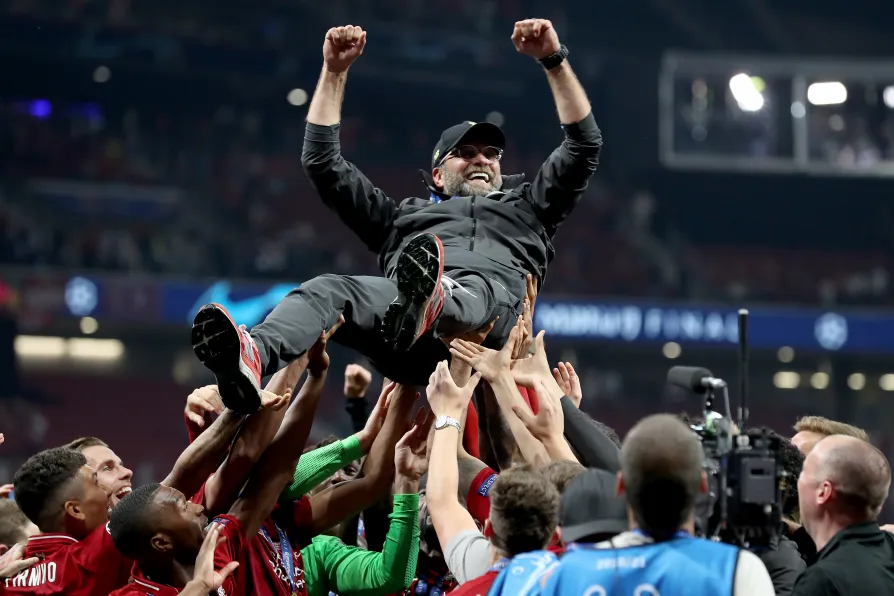
 Jurgen Klopp, June 1, 2019
Jurgen Klopp, June 1, 2019
MODERN football requires its best football managers to be politically savvy. They don’t necessarily need to have full knowledge of specific policy or detail beyond that of their clubs, but on wider issues, a political grounding and a general understanding of what’s happening outside the lucrative football bubble is important, or at least useful.
Football managers have to deal with as much media scrutiny as politicians do, and need knowledge of a range of issues beyond sport. Their job is no longer just about managing and coaching a group of players.
Football was already an inherently political sport but it has increasingly become a political tool on a global scale outside the sport itself. Top-level football’s mingling with billionaires, their media, nation-states, and geopolitics has further embedded it into the system of global capitalism.

JAMES NALTON writes on how the title win has sparked long-awaited celebrations among fans after a triumph four years — and one pandemic — in the making













